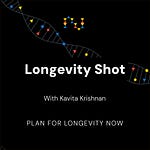Do we all need to have protein powder?
Nutrition Expert Dr Subashree Ray had an interesting answer to that question. Her reply:
Eating protein powders can be a convenient option. But if you're having a bowl of sprouts, it can give you so much more than just protein. It can give you fibre, it can give you antioxidants, it can give you vitamins and you're going to lose that.
So my opinion would be that if you are really, really falling short - I mean if you know that, yes, I am living in a condition where khichdi or only those kind of foods are available, then you must supplement. Or say you are an athlete who has a particular health goal, you must do that.
But, I always emphasise that please first try to get it from a natural food. A particular food can give you so much more than just a single nutrient. So it should be always something which is giving you fibre or vitamins or minerals along with the protein, not just protein.
Supplement should be supplement, it should not be replacement.
And if you are wondering just how you can get protein from an Indian diet, Subashree backs it up with a practical and easy to sustain strategy, which she outlined on the Longevity Shot.
She should know, considering that as the Section Head, Wellness, TVS Motor Company, she sends her day designing wellness programmes for employees at one of India’s biggest auto companies. Previously, she planned nutritious, well-balanced meals for the workforce of one of India’s biggest conglomerates.
How does one get their daily protein fix on an Indian diet?
In our conversation on the Longevity Shot, Subashree gives us a 3-step-plan.
Step 1: Understand how to eat right
The biggest problem with the Indian diet - vegetarian or non-vegetarian- according to the expert, is that it is carb-heavy.
The solution: Re-imagine the thali.
Fill half with veggies, 1/3rd with high-quality protein of plant or animal origin, 1/3rd with whole grains like brown rice, whole wheat pasta, quinoa, or millets. Also add, curd or buttermilk for probiotics, and fruit for fibre, antioxidants, and flavonoids.
Step 2: Know your Protein
The problem with plant protein: your body cannot absorb it easily. As Subashree explains, “Whey protein or a protein powder typically has 90 to 96% of absorbability or availability. At the same time when it comes to plant protein, the absorbability availability is near to 70%.”
The solution: Add more bio-available plant protein sources to your diet - she lists these in the interview.
Step 3: Plan your meals
Ensure you are eating protein in every meal, especially if you are vegetarian or vegan.
Non-vegetarian? Your diet could be protein-deficient too, especially if you don’t eat animal sources of protein every day.
How do you plan your meals so you eat enough protein every day?
That’s exactly the strategy Subashree outlines in that conversation.
Plus, whether you are vegetarian, vegan or non-vegetarian; she also gives multiple, affordable, and locally available options.
But that’s enough from me. Why don’t you listen in to the expert herself?
Stream that conversation now right here, on Substack. You could also watch it on YouTube or Spotify.
This conversation is merely part 2 of a 3-part series on Nutrition and Longevity.
In the previous episode, Subashree told us how to power our thali - yeah! eat Indian- for longevity.
Find that here: Substack | Spotify | YouTube
And coming next is a conversation for our times: ‘How to eat healthy on a budget.’
So if you are new here, consider hitting the button below. That way you will get a nice, little email from me when that episode drops.
For now, tune in. Figure out how to get more protein in your diet.
I will see you Monday.
Kavita Krishnan.













Share this post